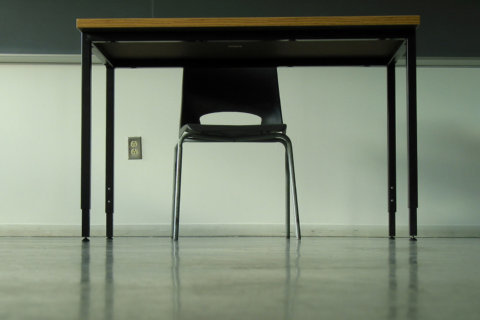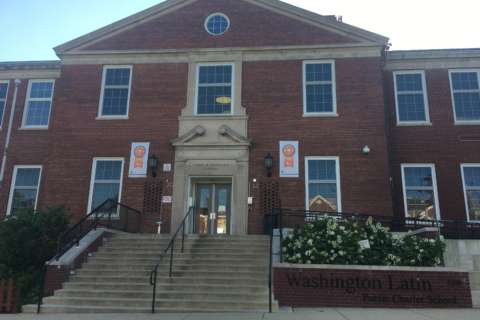
WASHINGTON — Following the graduation-rate scandal in which a third of D.C. high school seniors graduated in 2017 without meeting requirements, a D.C. State Board of Education task force is recommending some changes.
A draft report by a task force of educators, parents and students asks the state superintendent of education to make three policy changes:
- Allow students to demonstrate they’ve mastered content in world language or math without taking the course.
- Cut the number of community service hours students are required to perform from 100 to 50.
- Create a personalized learning plan for each student, starting in elementary school, and revisited in middle and high school.
To receive credit for a world language or math course without taking the 120 hours of classroom instruction, students would be required to pass approved equivalency testing.
“We think it’s really important to recognize that students gain knowledge well outside the walls of our classroom,” said Laura Wilson Phelan, Ward 1 representative of the D.C. State Board of Education and co-chair of the task force.
“Students can obtain knowledge in lots of different ways, and we should be awarding credit for the knowledge they obtain,” she said.
Markus Batchelor, Ward 8 representative of the D.C. State Board of Education and also co-chair of the task force, said that a failure to complete community service hours is a major factor in some D.C. public school students falling short of graduation requirements.
“Community service hours and meeting those hours has been one of the highest barriers to graduation,” he said. “Often times, it’s not just because they don’t want to do their hours; it’s because there’s other things pulling their time.”
The task force said there are warning signs as early as third grade that a child may be on a rocky road toward a successful high school graduation. Thus, the call for personalized learning plans that would offer ideas for intervention between second and fourth grades, at the end of fifth grade, and at the end of eighth grade.
Wilson Phelan added, “We know and the data shows that actually at third grade, we’re able to predict which students are on the pathway to graduation and which aren’t. But that information isn’t always shared with families in a way that’s easily understood.”










